Adrenal NutraMedix 30ml
- Add feedback:
- Code: 8266
- Manufacturer: Nutramedix
-
Availability:
 Exists
Exists
- szt.
- 19.84 €

Adrenal 30 ml
TO RESOLVE:
- ADRENAL FATIGUE
- EXHAUSTION
TO RESTORE:
- ENERGY
- STAMINA
- ENDURANCE
General Description
Adrenal is a proprietary blend of the extracts of four adaptogenic plants – Panax quinquefolium, Astragalus mongholicus, Schisandra Chinensis, and Rhodiola Rosea. This proprietary blend supplies energy and replenishes depleted adrenal glands. The adrenal glands help the body respond to stress and also produce steroids that contribute to the production of over 100 hormones that are vital to optimum health. It is estimated that approximately 95% of the population of the United States suffers from some degree of Adrenal Fatigue which is any decrease in the ability of the adrenal glands to perform normal functions.
Some Reported Medicinal Properties
• ADAPTOGENIC
• ANTIOXIDANT
• ANTISPASMODIC
• ANTISEPTIC
• APHRODISIAC
• CARMINATIVE
• DEMULCENT
• DIAPHORETIC
• DIURETIC
• EXPECTORANT
• HYPOTENSIVE
• NERVINE
• STIMULANT
• STOMACHIC
• VASODILATOR
Medical Conditions
(peer-reviewed journals)
ANXIETY
Bystritsky, A., Kerwin, L., & Feusner, J. D. (2008). A pilot study of Rhodiola rosea (Rhodax®) for generalized anxiety disorder (GAD). The Journal of Alternative and Complementary Medicine, 14(2), 175-180. Full Article
ALZHEIMER DISEASE
Hu, D., Cao, Y., He, R., Han, N., Liu, Z., Miao, L., & Yin, J. (2012). Schizandrin, an antioxidant lignan from Schisandra chinensis, ameliorates Aβ 1–42-induced memory impairment in mice. Oxidative Medicine and Cellular Longevity, 2012. Full Article
Tang, H., Wang, J., Zhao, L., & Zhao, X. M. (2017). Rhodiola rosea L extract shows protective activity against Alzheimer’s disease in 3xTg-ADmice. Tropical Journal of Pharmaceutical Research, 16(3), 509-514. Full Article
ALCOHOLIC LIVER DISEASE
Yuan, R., Tao, X., Liang, S., Pan, Y., He, L., Sun, J., ... &Wang, C. (2018). Protective effect of acidic polysaccharide from Schisandra chinensis on acute ethanol-induced liver injury through reducing CYP2E1-dependent oxidative stress. Biomedicine & Pharmacotherapy, 99,537-542. Full Article
ALZHEIMER DISEASE
Wang, M., Bi, W., Fan, K., Li, T., Yan, T., Xiao, F., ... &Jia, Y. (2018). Ameliorating effect of Alpinia oxyphylla—Schisandra chinensis herb pair on cognitive impairment in a mouse model of Alzheimer’s disease. Biomedicine & Pharmacotherapy, 97, 128-135. Full Article
BLADDER CANCER
Liu, Z., Li, X., Simoneau, A. R., Jafari, M., & Zi, X. (2012). Rhodiola rosea extracts and salidroside decrease the growth of bladder cancer cell lines via inhibition of the mTOR pathway and induction of autophagy. Molecular Carcinogenesis, 51(3), 257-267. Full Article
BREAST CANCER
Qiu, Y. K., Dou, D. Q., Cai, L. P., Jiang, H. P., Kang, T. G., Yang, B. Y., ... & Li, M. Z. (2009). Dammarane-type saponins from Panax quinquefolium and their inhibition activity on human breast cancer MCF-7 cells. Fitoterapia, 80(4), 219-222. Full Article
Wang, C. Z., Aung, H. H., Zhang, B., Sun, S., Li, X. L., He, H., ... & Yuan, C. S. (2008). Chemopreventive effects of heat-processed Panax quinquefolius root on human breast cancer cells. Anticancer Research, 28(5A), 2545-2551. Full Article
CARDIAC STIFFNESS
Mucalo, I., Jovanovski, E., Rahelić, D., Božikov, V., Romić, Ž., & Vuksan, V. (2013). Effect of American ginseng (Panax quinquefolius L.) on arterial stiffness in subjects with type-2 diabetes and concomitant hypertension. Journal of Ethnopharmacology, 150(1), 148-153. Full Article
DEPRESSION
Darbinyan, V., Aslanyan, G., Amroyan, E., Gabrielyan, E., Malmström, C., & Panossian, A. (2007). Clinical trial of Rhodiola rosea L. extract SHR-5 in the treatment of mild to moderate depression. Nordic Journal of Psychiatry, 61(5), 343-348. Full Article
Yan, T., He, B., Wan, S., Xu, M., Yang, H., Xiao, F., ... &Jia, Y. (2017). Antidepressant-like effects and cognitive enhancement of Schisandra chinensis in chronic unpredictable mild stress mice and its related mechanism. Scientific reports, 7(1), 6903. Full Article
DIABETES
Vuksan, V., Sievenpiper, J. L., Koo, V. Y., Francis, T., Beljan-Zdravkovic, U., Xu, Z., & Vidgen, E. (2000). American ginseng (Panax quinquefolius L) reduces postprandial glycemia in nondiabetic subjects and subjects with type 2 diabetes mellitus. Archives of Internal Medicine, 160(7), 1009-1013. Full Article
INFLUENZA
Jeong, H. J., Ryu, Y. B., Park, S. J., Kim, J. H., Kwon, H. J., Kim, J. H., ... & Lee, W. S. (2009). Neuraminidase inhibitory activities of flavonols isolated from Rhodiola rosea roots and their in vitro anti-influenza viral activities. Bioorganic & Medicinal Chemistry, 17(19), 6816-6823. Full Article
HUNTINGTON’S DISEASE
Arabit, J. G., Elhaj, R., Schriner, S. E., Sevrioukov, E. A.,& Jafari, M. (2018). Rhodiola rosea Improves Lifespan, Locomotion, and Neurodegeneration in a Drosophila melanogaster Model of Huntington’sDisease. BioMed Research International, 2018. Full Article
MEMORY LOSS
Giridharan, V. V., Thandavarayan, R. A., Sato, S., Ko, K. M., & Konishi, T. (2011). Prevention of scopolamine-induced memory deficits by schisandrin B, an antioxidant lignan from Schisandra chinensis in mice. Free Radical Research, 45(8), 950-958. Full Article
Scholey, A., Ossoukhova, A., Owen, L., Ibarra, A., Pipingas, A., He, K., ... & Stough, C. (2010). Effects of American ginseng (Panax quinquefolius) on neurocognitive function: an acute, randomised, double-blind, placebo-controlled, crossover study. Psychopharmacology, 212(3), 345-356. Full Article
Tohda, C., Tamura, T., Matsuyama, S., & Komatsu, K. (2006). Promotion of axonal maturation and prevention of memory loss in mice by extracts of Astragalus mongholicus. British Journal of Pharmacology, 149(5), 532-541. Full Article
NEUROLOGICAL DISEASES
Zhang, M., Xu, L., & Yang, H. (2018). Schisandra chinensis Fructus and Its ActiveIngredients as Promising Resources for the Treatment of Neurological Diseases. International journal of molecular sciences, 19(7). Full Article
Medicinal Properties
(peer-reviewed journals)
ANTIOXIDANT
Cheng, N., Ren, N., Gao, H., Lei, X., Zheng, J., & Cao, W. (2013). Antioxidant and hepatoprotective effects of Schisandra chinensis pollen extract on CCl4-induced acute liver damage in mice. Food and Chemical Toxicology, 55, 234-240. Full Article
Battistelli, M., De Sanctis, R., De Bellis, R., Cucchiarini, L., Dachà, M., & Gobbi, P. (2009). Rhodiola rosea as antioxidant in red blood cells: ultrastructural and hemolytic behaviour. European Journal of Histochemistry, 49(3), 243-254. Full Article
Chen, C. F., Chiou, W. F., & Zhang, J. T. (2008). Comparison of the pharmacological effects of Panax ginseng and Panax quinquefolium. Acta Pharmacologica Sinica, 29(9), 1103. Full Article
Kim, S. H., Hyun, S. H., & Choung, S. Y. (2006). Antioxidative effects of Cinnamomi cassiae and Rhodiola rosea extracts in liver of diabetic mice. Biofactors, 26(3), 209-219. Full Article
Yu, D., Duan, Y., Bao, Y., Wei, C., & An, L. (2005). Isoflavonoids from Astragalus mongholicus protect PC12 cells from toxicity induced by L-glutamate. Journal of Ethnopharmacology, 98(1-2), 89-94. Full Article
De Sanctis, R., De Bellis, R., Scesa, C., Mancini, U., Cucchiarini, L., & Dachà, M. (2004). In vitro protective effect of Rhodiola rosea extract against hypochlorous acid-induced oxidative damage in human erythrocytes. Biofactors, 20(3), 147-159. Full Article
Kim, S. R., Lee, M. K., Koo, K. A., Kim, S. H., Sung, S. H., Lee, N. G., ... & Kim, Y. C. (2004). Dibenzocyclooctadiene lignans from Schisandra chinensis protect primary cultures of rat cortical cells from glutamate‐induced toxicity. Journal of Neuroscience Research, 76(3), 397-405. Full Article
Ng, T. B., Liu, F., & Wang, H. X. (2004). The antioxidant effects of aqueous and organic extracts of Panax quinquefolium, Panax notoginseng, Codonopsis pilosula, Pseudostellaria heterophylla and Glehnia littoralis. Journal of Ethnopharmacology, 93(2-3), 285-288. Full Article
Xu, Y., Jiang, H., Sun, C., Adu-Frimpong, M., Deng, W., Yu, J.,& Xu, X. (2018). Antioxidant and hepatoprotective effects of purified Rhodiola rosea polysaccharides. International journal of biological macromolecules, 117 (1), 167-178. Full Article
Sist, P., Tramer, F., Lorenzon, P., Urbani, R., Vrhovsek, U.,Bernareggi, A., & Sciancalepore, M. (2018). Rhodiola rosea, a protective antioxidant for intense physical exercise: An in vitro study. Journal of Functional Foods, 48, 27-36. Full Article
Kosakowska, O., Bączek, K., Przybył, J. L., Pióro-Jabrucka, E.,Czupa, W., Synowiec, A., ... & Węglarz, Z. (2018). Antioxidant and Antibacterial Activity of Roseroot (Rhodiola rosea L.) Dry Extracts. Molecules (Basel,Switzerland), 23(7). Full Article
Zhai, J., Zhang, F., Gao,S., Chen, L., Feng, G., Yin, J., & Chen, W. (2018). Schisandra chinensis extract decreases chloroacetaldehyde production in rats and attenuates cyclophosphamide toxicity in liver, kidney and brain. Journal of ethnopharmacology, 210, 223-231. Full Article
ANTIPROLIFERATIVE
Min, H. Y., Park, E. J., Hong, J. Y., Kang, Y. J., Kim, S. J., Chung, H. J., ... & Kang, S. S. (2008). Antiproliferative effects of dibenzocyclooctadiene lignans isolated from Schisandra chinensis in human cancer cells. Bioorganic & Medicinal Chemistry Letters, 18(2), 523-526. Full Article
Majewska, A., Grażyna, H., Mirosława, F., Natalia, U., Agnieszka, P., Alicja, Z., & Kuraś, M. (2006). Antiproliferative and antimitotic effect, S phase accumulation and induction of apoptosis and necrosis after treatment of extract from Rhodiola rosea rhizomes on HL-60 cells. Journal of Ethnopharmacology, 103(1), 43-52. Full Article
ANTITUMOR
Zhao, T., Mao, G., Mao, R., Zou, Y., Zheng, D., Feng, W., ... & Chen, Y. (2013). Antitumor and immunomodulatory activity of a water-soluble low molecular weight polysaccharide from Schisandra chinensis (Turcz.) Baill. Food and Chemical Toxicology, 55, 609-616. Full Article
ANTIFATIGUE
Qi, B., Liu, L., Zhang, H., Zhou, G. X., Wang, S., Duan, X. Z., ... & Zhao, D. Q. (2014). Anti-fatigue effects of proteins isolated from Panax quinquefolium. Journal of Ethnopharmacology, 153(2), 430-434. Full Article
Barton, D. L., Liu, H., Dakhil, S. R., Linquist, B., Sloan, J. A., Nichols, C. R., ... & Loprinzi, C. L. (2013). Wisconsin Ginseng (Panax quinquefolius) to improve cancer-related fatigue: a randomized, double-blind trial, N07C2. Journal of the National Cancer Institute, 105(16), 1230-1238. Full Article
Ishaque, S., Shamseer, L., Bukutu, C., & Vohra, S. (2012). Rhodiola rosea for physical and mental fatigue: a systematic review. BMC Complementary and Alternative Medicine, 12(1), 70. Full Article
Barton, D. L., Soori, G. S., Bauer, B. A., Sloan, J. A., Johnson, P. A., Figueras, C., ... & Christensen, B. (2010). Pilot study of Panax quinquefolius (American ginseng) to improve cancer-related fatigue: a randomized, double-blind, dose-finding evaluation: NCCTG trial N03CA. Supportive Care in Cancer, 18(2), 179. Full Article
Shevtsov, V. A., Zholus, B. I., Shervarly, V. I., Vol'skij, V. B., Korovin, Y. P., Khristich, M. P., ... & Wikman, G. (2003). A randomized trial of two different doses of a SHR-5 Rhodiola rosea extract versus placebo and control of capacity for mental work. Phytomedicine, 10(2-3), 95-105. Full Article
Darbinyan, V., Kteyan, A., Panossian, A., Gabrielian, E., Wikman, G., & Wagner, H. (2000). Rhodiola rosea in stress induced fatigue—a double blind cross-over study of a standardized extract SHR-5 with a repeated low-dose regimen on the mental performance of healthy physicians during night duty. Phytomedicine, 7(5), 365-371. Full Article
Spasov, A. A., Wikman, G. K., Mandrikov, V. B., Mironova, I. A., & Neumoin, V. V. (2000). A double-blind, placebo-controlled pilot study of the stimulating and adaptogenic effect of Rhodiola rosea SHR-5 extract on the fatigue of students caused by stress during an examination period with a repeated low-dose regimen.Phytomedicine, 7(2), 85-89. Full Article
ANTIFUNGAL
Yan, Q., Jiang, Z., Yang, S., Deng, W., & Han, L. (2005). A novel homodimeric lectin from Astragalus mongholicus with antifungal activity. Archives of Biochemistry and Biophysics, 442(1), 72-81. Full Article
ANTI-INFLAMMATORY
Oh, S. Y., Kim, Y. H., Bae, D. S., Um, B. H., Pan, C. H., Kim, C. Y., ... & Lee, J. K. (2010). Anti-inflammatory effects of gomisin N, gomisin J, and schisandrin C isolated from the fruit of Schisandra chinensis. Bioscience, Biotechnology, and Biochemistry, 74(2), 285-291. Full Article
Bawa, A. S., & Khanum, F. (2009). Anti‐inflammatory activity of Rhodiola rosea–“a second‐generation adaptogen”. Phytotherapy Research: An International Journal Devoted to Pharmacological and Toxicological Evaluation of Natural Product Derivatives, 23(8), 1099-1102. Full Article
Guo, L. Y., Hung, T. M., Bae, K. H., Shin, E. M., Zhou, H. Y., Hong, Y. N., ... & Kim, Y. S. (2008). Anti-inflammatory effects of schisandrin isolated from the fruit of Schisandra chinensis Baill. European Journal of Pharmacology, 591(1-3), 293-299. Full Article
Li, Y. Z., Ren, S., Yan, X.T., Li, H. P., Li, W., Zheng, B., ... & Liu, Y. Y. (2018). Improvement ofCisplatin-induced renal dysfunction by Schisandra chinensis stems viaanti-inflammation and anti-apoptosis effects. Journal of ethnopharmacology, 217, 228-237. Full Article
ANTICONVULSIVE
Jalsrai, A., Grecksch, G., & Becker, A. (2010). Evaluation of the effects of Astragalus mongholicus Bunge saponin extract on central nervous system functions. Journal of Ethnopharmacology, 131(3), 544-549. Full Article
ANXIOLYTIC EFFECT
Wei, X. Y., Yang, J. Y., Wang, J. H., & Wu, C. F. (2007). Anxiolytic effect of saponins from Panax quinquefolium in mice. Journal of Ethnopharmacology, 111(3), 613-618. Full Article
ADAPTOGENIC EFFECT
Perfumi, M., & Mattioli, L. (2007). Adaptogenic and central nervous system effects of single doses of 3% rosavin and 1% salidroside Rhodiola rosea L. extract in mice. Phytotherapy Research: An International Journal Devoted to Pharmacological and Toxicological Evaluation of Natural Product Derivatives, 21(1), 37-43. Full Article
MITOCHONDRIAL SUPPORT
Abidov, M., Crendal, F., Grachev, S., Seifulla, R., & Ziegenfuss, T. (2003). Effect of extracts from Rhodiola rosea and Rhodiola crenulata (Crassulaceae) roots on ATP content in mitochondria of skeletal muscles. Bulletin of Experimental Biology and Medicine, 136(6), 585-587. Full Article
IMMUNOMODULATING
Wang, M., Guilbert, L. J., Ling, L., Li, J., Wu, Y., Xu, S., ... & Shan, J. J. (2001). Immunomodulating activity of CVT‐E002, a proprietary extract from North American ginseng (Panax quinquefolium). Journal of Pharmacy and Pharmacology, 53(11), 1515-1523. Full Article
RELAXANT
Mattioli, L., Funari, C., & Perfumi, M. (2009). Effects of Rhodiola rosea L. extract on behavioural and physiological alterations induced by chronic mild stress in female rats. Journal of Psychopharmacology, 23(2), 130-142. Full Article
Mattioli, L., & Perfumi, M. (2007). Rhodiola rosea L. extract reduces stress-and CRF-induced anorexia in rats.Journal of Psychopharmacology, 21(7), 742-750. Full Article
VARIOUS PROPERTIES
Khanum, F., Bawa, A. S., & Singh, B. (2005). Rhodiola rosea: a versatile adaptogen. Comprehensive Reviews in Food Science and Food Safety, 4(3), 55-62. Full Article
Li, Y., Pham, V., Bui, M., Song, L., Wu, C., Walia, A., ... &Zi, X. (2017). Rhodiola rosea L.: an Herb with Anti-Stress, Anti-Aging, and Immunostimulating Properties for Cancer Chemoprevention. CurrentPharmacology Reports, 3(6), 384-395. Full Article
Patient Reports
"I have Lyme disease and struggle with the chronic fatigue it causes. My adrenals and thyroid are just spent. This product was recommended by my doctor. It made a huge difference in my daily life." -N.S.
“Immensely helpful for someone like me with Chronic Lyme. I take 10 drops per day, which is less than the recommended dose.” -J.M.
“Does the job! In fact, since using this, my morning cortisol has tested in the optimal zone for the first time in nearly a decade. Yay!!!” – E.S
"Love this product. It has helped me immensely with Adrenal Fatigue. I take twice a day every day and I have much more energy than I had before." -K.M.
"I found that this was helpful for me in my healing and use it regularly. If you have adrenal fatigue and are dealing with Lyme I recommend it." -L.R.
Dosage Information
20 drops in 4 oz. of water 2 times per day (breakfast and lunch are preferable).
Higher doses may be used if recommended by a qualified healthcare practitioner.
Safety Information
An acute oral toxicity study was conducted by the University of Guayaquil, Ecuador concluding
that Adrenal did not produce toxic effects, thus the product is considered practically innocuous for humans when administered in the acute form. Therefore; studies of acute toxicity at higher doses in humans are not necessary. Full Article

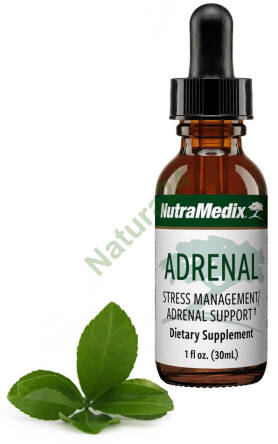



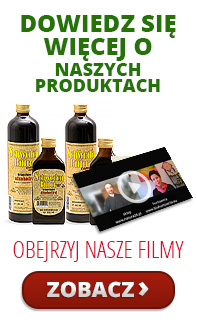
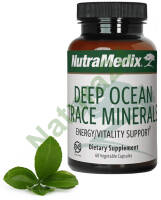
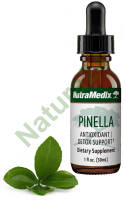
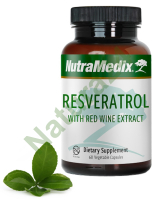
 Polish
Polish
 German
German
Wszystko przebiegło pomyślnie. Polecam!
SUPER KONTAKT, B. SZYBKA DOSTAWA, SUPER PRODUKT, SUPER SPRZEDAJACY - POLECAM BAAAARDZO
Z ogromną przyjemnością wystawiam komentarz POZYTYWNY!!! Wszystko sprawnie, miło i przyjemnie!!! Przesyłka ekspresowa.!!! GORĄCO POLECAM
Przesyłka wysłana w błyskawicznym tempie Juz na drugi dzień rano.Polecam w 100%.
olejek rycynowy rewelacyjny